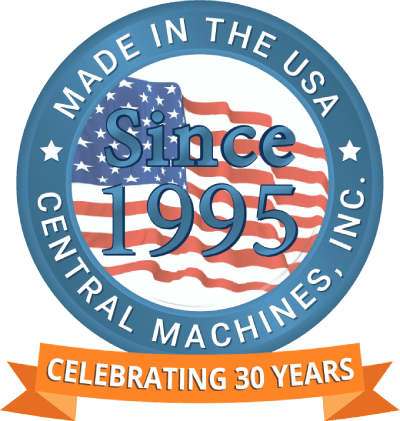Key Considerations in Cap Lining Machines
Cap lining machines are specialized units of packaging machinery for applying liners to the interior of bottle caps. These wads create a secure seal to the closures, preventing product destruction, contaminations, and tampering. Depending on the business or industry, the cap liners are often constructed from foam, cork, pulp, foil, or plastic.
Also known as cap sealing machines, these pieces of equipment offer several benefits. These include increased production efficiency, consistent and accurate liner application, reduced labor costs, and improved product reliability. They can also handle various sizes, shapes, and materials for different packaging needs, making them suitable for pharmaceutical, food and beverage, cosmetics, and chemical industries.
However, not all cap lining machines have the same capabilities. So, the following are some of the most significant considerations before purchasing, manufacturing, or utilizing them:
1. Cap Size and Shape
The caps come in various configurations, including round, square, oval, or custom shapes. For optimal performance, the machine’s gripping mechanisms should properly position the caps according to their specific form. Some devices also incorporate adjustable knobs that adapt to different cap heights, while others can handle precise height and diameter ranges.
2. Liner Material Compatibility
Different products require specific liner materials to ensure the packaged contents’ perfect sealing, preservation, and protection. For example, foam liners are used in the pharmaceutical and cosmetic sectors due to their superior cushioning and impact resistance. On the other hand, cork liners provide a natural and excellent seal, making them suitable for alcohol and wines.
Another example is plastic liners, which offer versatility and multiple customization options. They deliver a good seal against moisture, chemicals, and odors. These liners can be found in applications like personal care products, commercial chemicals, and industrial products.
Lastly, pulp liners are commonly used in dairy, juice, and condiments.
3. Production Speed
The production speed of cap lining machines directly impacts the overall efficiency and throughput of the packaging process. Generally, a higher production speed allows more caps to be lined within a given time frame, increasing productivity and output. This translates to higher operational efficiency and lower production costs per unit.
4. Automation Level
Fully automated cap lining machines are designed to perform the entire process with minimal human involvement. They have robotics, sensors, and programmable logic controllers (PLCs) to handle tasks, from cap feeding to liner application and discharge. With less staffing required to operate the machine, businesses can optimize their workforce and allocate resources to other areas of the operation.
5. Ease of Use and Maintenance
A machine with an innovative and user-friendly interface simplifies operations and decreases the learning curve for operators. Using intuitive controls enables them to navigate the machine’s functions without unnecessary complexity. It is also crucial to assess the frequency of maintenance tasks, such as lubrication, belt replacement, or blade sharpening.
6. Safety Features
Safety features are of utmost importance when selecting a cap lining machine to protect operators and prevent accidents in the workplace. For example, easily accessible emergency stop buttons allow them to quickly halt machine operation in case of emergencies. These may include equipment malfunction, safety hazards, or the need for immediate intervention.
Other safety features that a machine must have are as follows:
- Lockout/Tagout (LOTO) systems
- Interlocking systems
- Safety guarding
- Safety signage and labels
- Sensors and alarms
7. Cost and Return on Investment (ROI)
While the initial cost of the machine is a vital factor, it is equally important to assess the potential long-term benefits and savings. Calculate the payback period and consider the long-term benefits, cost savings, and increased efficiency. Moreover, consult with manufacturers or suppliers to gain insights into the ROI potential based on the production volume.
Choose Central Machines for Custom Automation Solutions
Central Machines is an industry-leading provider of high-quality turnkey automation systems and standalone machines. With our expertise and experience, we have built a solid reputation for delivering solutions that meet the diverse needs of our customers. We also take a collaborative approach, actively listening to your needs and leveraging our technical expertise to provide personalized services.
Contact us today or request a quote to begin your journey toward achieving your production goals!

